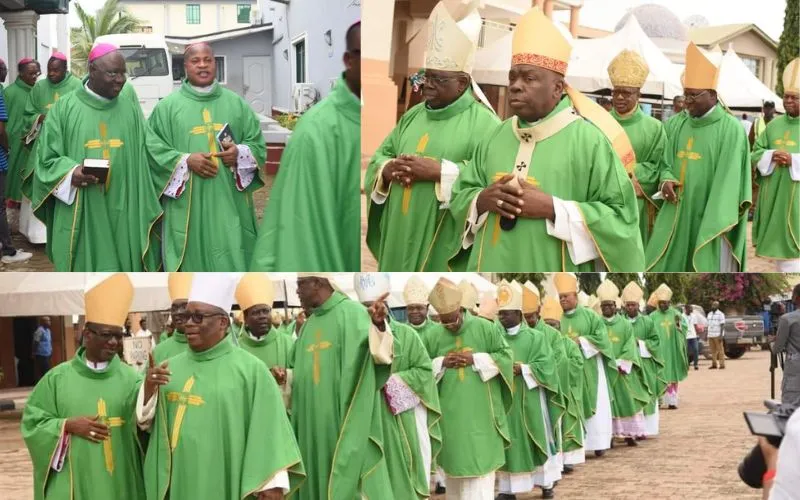In Nigeria, the people are facing multi-dimensional challenges ranging from poverty, unemployment among the youth, corruption among state officials, and insecurity owing to an increase in bandit groups and Islamists who are hell-bent on wiping off Christianity in the country
“We depend on the government to do the needful but sometimes the government never acts,” Archbishop Kaigama said, and added, “As the Church, we provide the psychological and spiritual sanctuary for people. They run to us for comfort, encouragement and support.”
In Nigeria, the Catholic Church is highly esteemed, the Catholic Archbishop, who started his Episcopal Ministry in April 1995 as Bishop of Nigeria's Jalingo Diocese told ACI Africa, and added, “Even as we meet as Catholic Bishops of Nigeria, the government is always eager to know the outcome of our meetings. Non-Catholics including Muslims are usually eager to know the outcome of our meetings.”
“Other non-Catholic Christian leaders have told me that it is Catholics who lead the ways,” he said, and added, “We are a light that should not be dimmed by these unorthodox practices. We are therefore going to strongly resist these terrible influences of Pentecostalism that try to violate our Catholic identity and values, and try to engage in popular piety that is also attracting people to individuals who have positioned themselves as the centre of attraction.”
“We are going to work very seriously in every Diocese to know which Priest is walking in accordance with the Catholic traditions and practices, and which Priests are out to look for money and popularity,” the Local Ordinary of Abuja since his installation in November 2019 told ACI Africa.
(Story continues below)
He said everyone in Nigeria is looking up to the Catholic Church for leadership and direction, adding that it is not time for the Church to fail the people.
“We owe this country spiritual and pastoral leadership. If the government is failing, I don’t think we too in the Church should fail. We should be the light. We should be the beacon of hope and do our best to see that we are united as Catholics, only heading in the same direction,” Archbishop Kaigama said.
Bishop Emmanuel Adetoyese Badejo of Nigeria’s Catholic Diocese of Oyo reiterated Archbishop Kaigama’s sentiments, urging Catholics in Nigeria to be firm in their faith.
“We must take the challenge of practicing our faith much better in order to overwhelm the forces that are trying to destroy us,” Bishop Badejo said in an interview with ACI Africa on Wednesday, September 4.
He expressed regret that in the Catholic Church in Nigeria, the people who want to practice faith authentically are “a little bit laid back.”
“It is time to increase the fervor of our prayers in order to overwhelm the other side,” he said.
On Liturgical abuses in Nigeria, the President of the Pan African Episcopal Committee for Social Communications (CEPACS), an entity of the Symposium of Episcopal Conferences of Africa and Madagascar (SECAM), said a Priest must always endeavour to be “a servant of the Liturgy”, and should therefore not use Liturgy as a tool to enrich himself.
On the issue of private ministries, Bishop Badejo said, “We insist that the only ministry is that of Jesus Christ.”
“When you find people who say ‘my ministry’, know that they are in error. If the only ministry we have is that of Jesus Christ, then we cannot use it for self-serving glorification,” he said.
The Bishop of the Catholic Diocese of Oyo told ACI Africa that Local Ordinaries in Nigeria had invited the Clergy, women and men Religious and the Laity, including Catechists to be the monitors of what is going on, and inspired by Synodality, “to courageously speak up against these abuses.”
Agnes Aineah is a Kenyan journalist with a background in digital and newspaper reporting. She holds a Master of Arts in Digital Journalism from the Aga Khan University, Graduate School of Media and Communications and a Bachelor's Degree in Linguistics, Media and Communications from Kenya's Moi University. Agnes currently serves as a journalist for ACI Africa.








